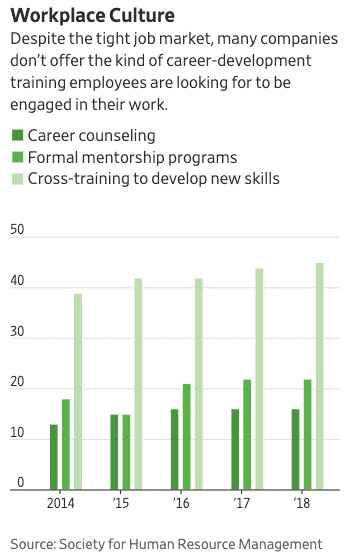Does money motivate employees? Employee engagement and compensation
Does salary affect employee engagement, job satisfaction, and ultimately profit?

This article is an exploration of money as a means of engagement and satisfaction among knowledge workers.
With the assumption that knowledge workers likely aren’t living paycheck to paycheck with the sole motivation of survival. Does salary affect employee engagement, job satisfaction and ultimately profit?
Even though many might say they want more money, research suggests that even if people choose their own salaries, they probably would not enjoy their job more.
Perks don’t affect employee engagement – and financial compensation is not so different
Companies are starting to realize that games, fancy happy hours, and beer taps in offices aren’t captivating knowledge workers like they did a few years ago. Though they have become standard in tech offices, a backlash is beginning in which companies like Apple are turning to simpler, more professional offices focusing on the beauty of the space rather than games and entertainment.
While it may seem exciting at first to have video games or foosball tables in the office, the hype has a shorter shelf-life than one might think. When it comes to employee engagement, it simply doesn’t cut it.
The Adaptation-Level Phenomenon in Psychology explains this quite well. This “is the tendency people have to quickly adapt to a new situation until that situation becomes the norm. Once the new situation is normal, another new experience is needed — it constantly raises the level for what is new or exciting as each new thing becomes the norm.”
In other words, those office games and beer taps will not excite employees after it becomes the norm and it is sure to become the norm very quickly. Companies will find themselves trying to beat the high of their last perk and find themselves in a rat race of superficial engagement attempts.
While money is still important, after all, people need to provide for themselves and loved ones, additional salary bumps could be more of an expected thank you than an incentive to increase productivity and innovation.
Money is not a long-term motivator
The same principle can be applied to high salaries and bonuses – once it’s given they become part of employee expectations for the coming year.
Expectations will climb and if a company fails to keep up, the disappointment combined with the financial cost may not be the best strategy at least in terms of employee engagement.
Providing competitive salaries and bonuses to your employees is still a must, but don’t make the mistake of thinking high pay will keep employees at your company longer. Money may have been a motivator in getting people to accept your offer and join your company, but money is not a long-term motivator in terms of performance.
A poll conducted by Robert Walters revealed that 91 percent of millennials, the largest generation in the workforce, regard career progression a top priority and 53 percent said that they’d been dissatisfied by their employers’ personal development offerings.
“Younger employees are also hungry for growth in the form of promotions and raises. As a manager, I’m seeing quicker asks for raises and promotions, but I’m also seeing a hunger for new opportunities to grow and develop new skill sets. Members of this generation are figuring out how they want to grow professionally and trying to find a way to do that within company boundaries,” Lauren Elmore in Forbes.
In the workplace of today, companies must be careful note to overweigh the importance of financial compensation on performance and retention.
A recent article puts it nicely: “Money is obviously important, but a main component to retention is keeping your top talent happy. And happiness is still one of those things money can’t buy.”
Margaret Graziano writes that “for 80% of the working population the money is not a lever that leads to engagement and buy in. 40% of people want workplace rewards in terms of more educational opportunities, rewarding and challenging projects, and a sense that they can further their knowledge and career path as a result of working with a specific company or in a certain role. The other 40% of workers want to feel emotionally connected to the mission and service of the organization and to the customers they serve.”
Just because most companies believe money to be a method of employee engagement does not make it fact.

High salary does not correlate to high job satisfaction or performance
One of the most comprehensive studies in this pursuit is a meta-analysis by Tim Judge and colleagues, which combined 120 years of research to synthesize the findings from 92 quantitative studies including a dataset of over 15,000 individuals and 115 correlation coefficients.
As Tomas Chamorro-Premuzic writes in Harvard Business Review, “the results indicate that the association between salary and job satisfaction is very weak. The reported correlation (r = .14) indicates that there is less than 2% overlap between pay and job satisfaction levels. Furthermore, the correlation between pay and pay satisfaction was only marginally higher (r = .22 or 4.8% overlap), indicating that people’s satisfaction with their salary is mostly independent of their actual salary.”
A cross-cultural comparison revealed that these finds are more or less the same across countries, between the US, India, Australia, Britain, and Taiwan for example.
These finds are in line with Gallup’s engagement research, which found that there was no significant difference in employee engagement by pay level. This research was based on 1.4 million employees from 192 organizations in 49 industries in 34 countries.
Tomas Chamorro-Premuzic concludes: “if we want an engaged workforce, money is clearly not the answer. In fact, if we want employees to be happy with their pay, money is not the answer. In a nutshell: money does not buy engagement.”
Investing in employee development is the best motivator
As Sue Shellenbarger writes in the Wall Street Journal: “Companies that rank in the top 10% in engaging their employees, including giving them the training and encouragement to do their best work and imbuing it with a sense of purpose, posted profit gains of 26% through the last recession, compared with a 14% decline at comparable employers, says Jim Harter, chief workplace scientist at Gallup and author of its annual employee-engagement survey.”
Not only the most innovative, but the most profitable companies are developing existing talent and investing in internal recruitment and mobility. According to a recent study of 1,220 employers by Bersin, Deloitte Consulting LLP, “the top 13% of companies in the study were 5x as likely to develop and promote insiders in a systematic way, and 3x as likely to retain top talent, than the lowest-performing companies,” Shellenbarger explains. The study shows that they also reported 30% higher profit per employee.

A survey by the consultancy Great Place to Work of 400,000 American workers revealed when people believe internal promotions are effectively managed and a real possibility, they are twice as likely to put in extra effort on the job. “A clear policy on internal promotions also correlates with share price returns at triple the market average, and staff turnover half that of rivals,” writes Charles Orton-Jones.
The evidence is clear, investing in the long-term career development and skills of employees directly and positively affects employee engagement, productivity, and ultimately profitability.
InnerMobility by Gloat is an AI-powered internal talent marketplace connecting employees with personalized career development opportunities. It empowers employees to take control of their own careers and find their maximum productivity bliss within their current company.





